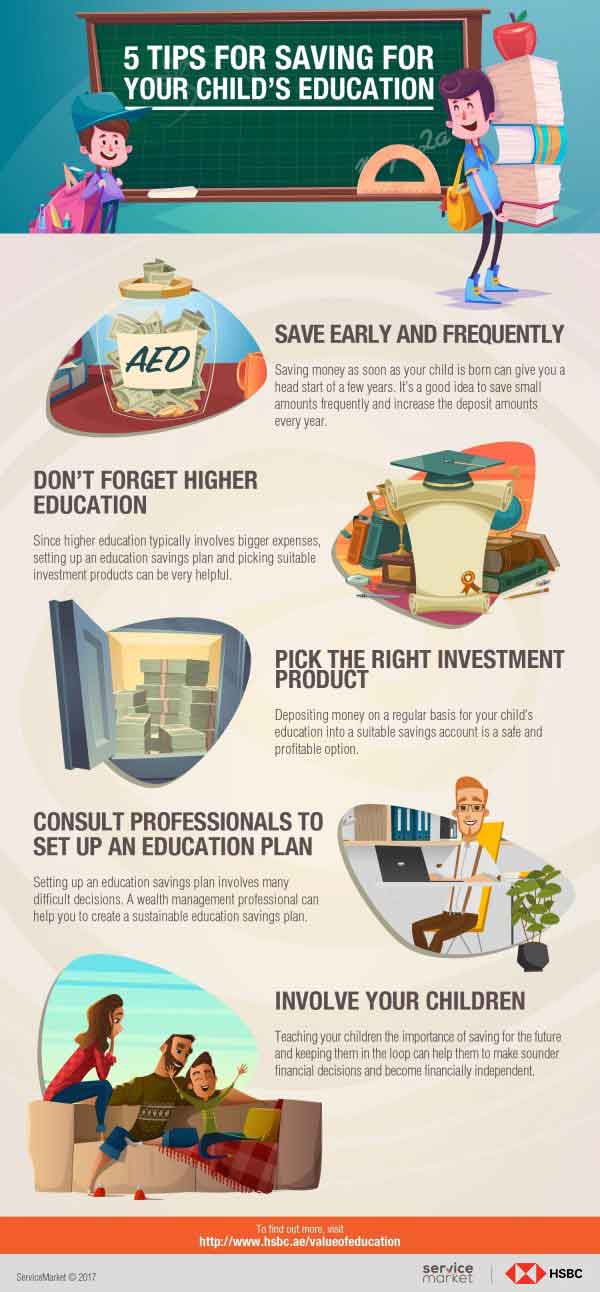As a parent, your greatest concern is the wellbeing of your child, and education plays an important role in this. Education over the world seems to be getting more expensive every year, especially in the UAE, so it’s a good idea to create a financial plan for your child’s education to give yourself some peace of mind. Here are some tips you might want to consider.
1. Save early and frequently
It’s beneficial to start saving money as soon as your child is born to get a head start of a few years. Having some savings set aside for your child’s education means that you will not suddenly have to pay out a large amount of your income when they start school. Saving small amounts frequently and increasing the deposits every year can help to take a lot of pressure off your family’s financials. Remember, you are likely to see an increase in tuition fees as your child climbs the academic ladder. Saving unexpected or additional inflows of money like bonuses for your child’s education can also make things easier.
2. Don’t forget higher education
Higher education costs are typically more expensive, so if you’re planning on paying for your child’s higher education, then it’s a good idea to start planning in advance. People who don’t have an education saving plan often have to take out a substantial loan to pay the fees or use their retirement funds. The cost of higher education can be very high if you plan to send your children abroad for studies. So, it might be a good idea to research the typical higher education costs and look into suitable investment products.
3. Consider investment options
One savings option would be to deposit money on a regular basis for your child’s education into a suitable savings account. Having a specific savings account or fund for your child’s education makes it easier to monitor your savings and having a fixed monthly payment can help you to commit to achieving your saving goals. Other options available to UAE residents include investing in a mutual fund or insurance policy.
4. Professionals can help you develop an education plan
Since there are multiple investment products and it can be difficult to figure out how much money should be saved each month, many parents struggle to set up an education savings plan without the help of an experienced professional. Consulting a wealth management professional can help to make the decision and process easier. An experienced professional can also update your plans according to shifts in your income and budget, keep you on track and advise you on other important matters.
5. Involve your children
At the end of the day, you’re saving for your child so you might want to consider keeping him/her in the loop. Teaching them the importance of money when they are fairly young can help to instill good saving habits early on. Some parents involve their child in some of their household’s money matters and give them important (but not too risky) responsibilities. This can include entrusting them with money to go towards bill payments, and taking them grocery shopping so they can learn how to budget effectively.








